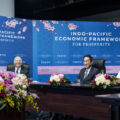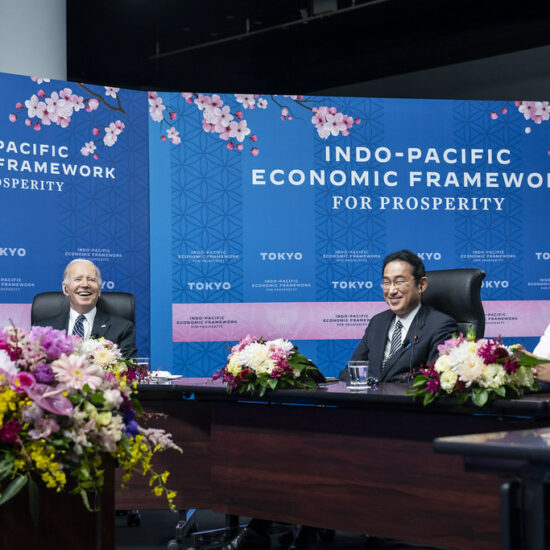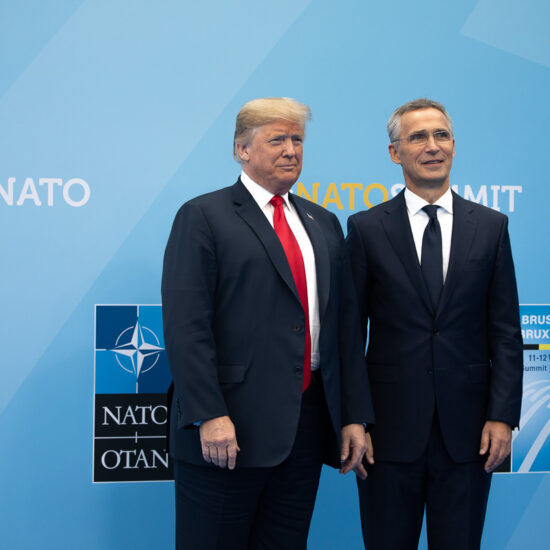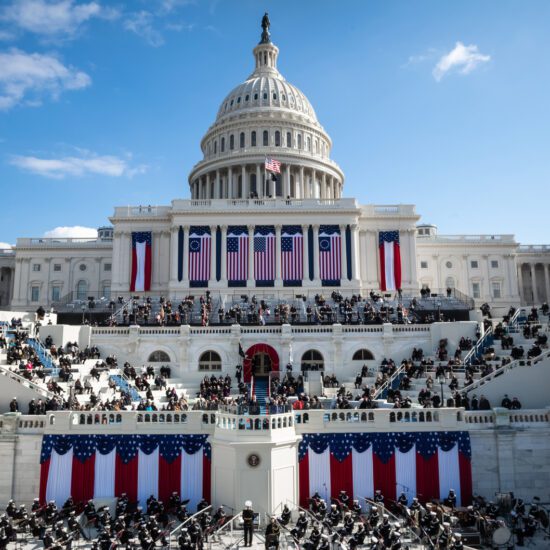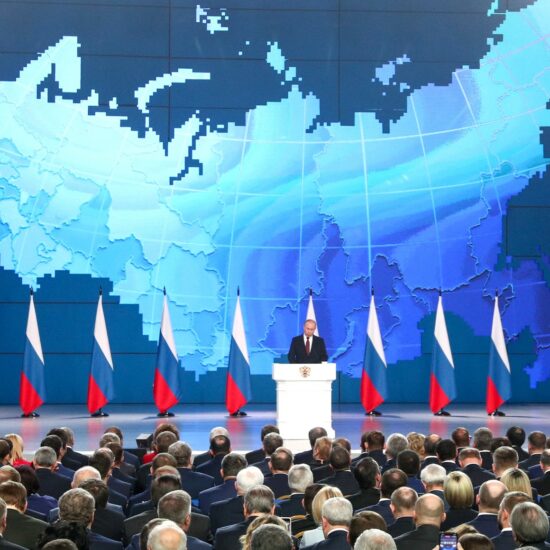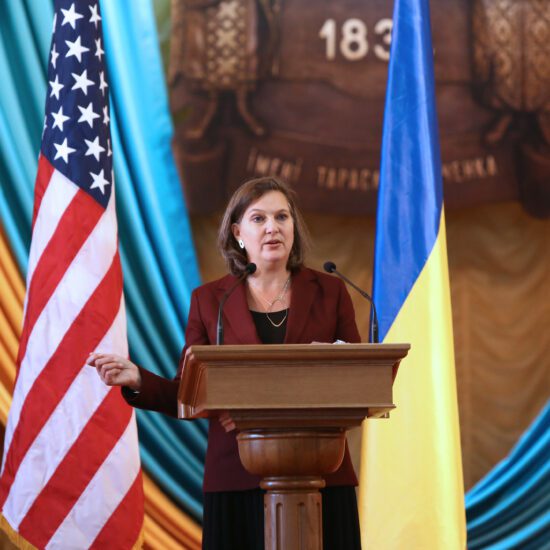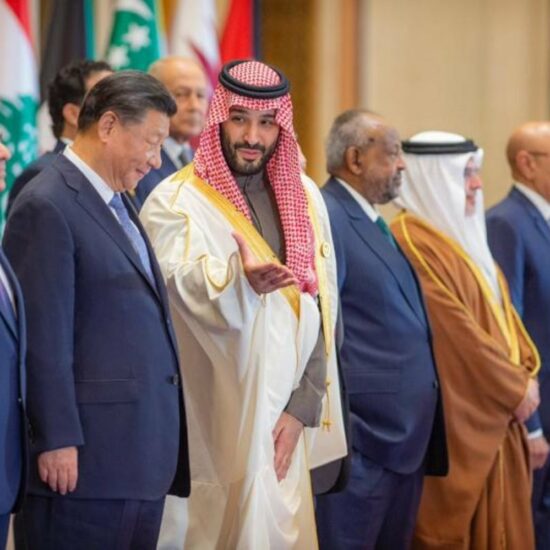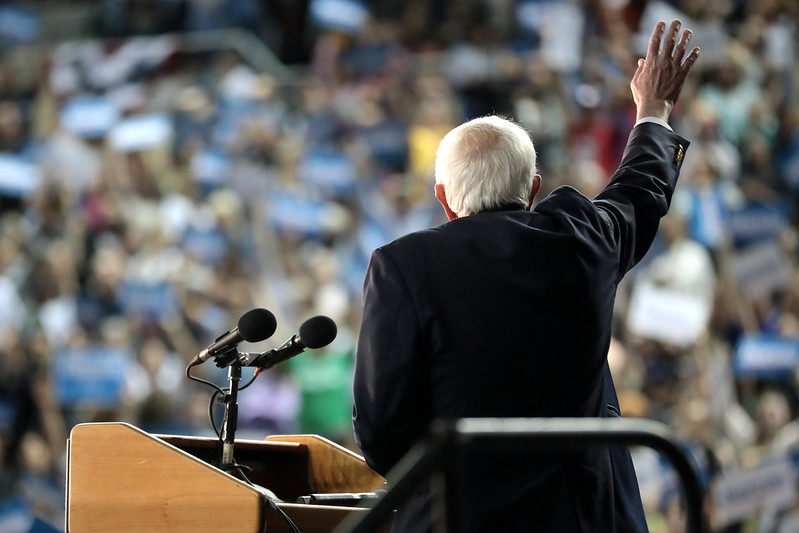
Image by: Gage Skidmore
Without a doubt, there is enough existing overlap in the policy positions of Sanders and Biden that could facilitate a role for Sanders as Secretary of State in a Biden administration.
Notwithstanding ongoing concerns surrounding the outcome of the upcoming election, it would be a worthwhile exercise to play the Cabinet guessing-game in the event that former Vice-President Biden wins on November 3rd. Subject to Senate confirmation of course, should Senator Bernie Sanders be appointed as Secretary of State? Although there may appear to be stark differences between Biden and Sanders’ foreign policies, there might just be enough common ground to support such a partnership, which could yield tremendous benefits to US national interests in the post-Trump era.
Of course, the idea of selecting a former political rival as Secretary of State is not so far-fetched. In 2008, President-Elect Barack Obama offered the role to his Democratic primary rival, Hillary Clinton, with whom he sustained a heated contest during the primaries and caucuses. Among the drivers then, was Obama’s intent at unifying political divides, and repairing America’s relationships abroad by appointing a political heavyweight as his chief diplomat after years of apparent diplomatic negligence under the George W. Bush administration.
Similarly, Sanders’ stature and celebrity would serve the United States well as it works to repair relationships with the international community following four years of American withdrawal from the rules-based global order it helped establish. To be sure, US foreign policy under Trump can be broadly characterized as transactional, short-sighted, devoid of strategy and guided by domestic political considerations. What is more, unlike many of his predecessors, President Trump disregards long-established alliances and partnerships, seemingly in favour of authoritarian leaders around the world, such as Turkey’s Erdoğan, Kim Jong Un and perhaps most notably, Russian President Vladimir Putin.
Certainly, Sanders’ foreign policy credentials have expanded since his first presidential run, when pundits decried his lack of focus on foreign policy issues. Indeed, in recognizing the need to include more progressive ideas into the fold, the Democratic Party’s 2020 platform calls for ending “forever wars” and scaling back military intervention, which largely reflects important progressive foreign policy priorities according to Matt Duss, Senator Sanders’ foreign policy advisor. This nod to the left by the Biden campaign and the Democratic establishment is not all that surprising. For months, there have been indications of an openness to more progressive foreign policy positions by the Biden campaign as a solution to overcoming the well-publicized policy rifts within the Democratic Party.
The Democratic primaries and the campaign leading up to them highlighted key differences between Biden and Sanders. Biden has, for the majority of his political career, supported traditional US foreign policy thinking—which among other things, has included an endorsement for the 2003 invasion of Iraq, a point of great criticism from Sanders over the course of the campaign. On the other hand, Sanders has been skeptical of US interventions and bloated defense budgets. More recently, a significant policy difference came to the fore this summer during the drafting of the 2020 Democratic Party platform. For the first time, the platform was planned to assert Palestinians’ right to live free of foreign occupation; an indirect reference to Israel’s protracted settlements in their territory. However, the former Vice-President vetoed this inclusion. Biden and Sanders have also differed on free trade, with the former having been a staunch supporter while the latter has taken a decisively more critical posture over the years. While reconciling policy differences between the progressive wing and centrists will require some leg work, it is not an insurmountable task—particularly given that both Sanders and Biden have pledged to reinvigorate the use of American diplomacy as an instrument of statecraft.
For instance, Biden had indicated support for the War Powers Resolution backed by Sanders that would have ceased American support for the Saudi-led war in Yemen. Importantly, both also support non-proliferation and arms control efforts, and have advocated rejoining the Iran Nuclear Deal and extending the sunsetting New START agreement with Russia to prevent a new nuclear arms race. Both advocate for aggressive action against climate change by rejoining the Paris climate accord at minimum, and have demonstrated their commitment to robust sustainability policy in their presidential campaigns. On free trade, while Sanders has traditionally opposed it due to labour concerns and potential impacts on American workers and the environment, Biden has pledged to include labour unions and environmental groups in all future negotiations. These few examples show that there may be just enough for Sanders to work with, should he be offered the role.
All this to say that although offering the role of Secretary of State to Sanders seems improbable, creative thinking may be necessary to repair American foreign relations, should former Vice-President Biden win what will surely be a competitive election this November.
Navid Hassibi is with the Council on International Policy. The views expressed here represent his own. He tweets @navidhassibi.

